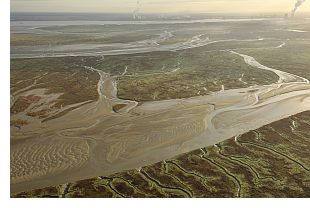News
SPIRAL "UK National Ecosystem Assessment" paper publshed
A new paper has been published based on work carried for SPIRAL, authored by Kerry Waylen and Juliette Young. This paper focuses on the first phase of the UK National Ecosystem Assessment.
Upcoming Event
No upcoming events.
What effect will the Water Framework Directive have on local planners?
For successful implementation of the Water Framework Directive, local planners will need specific targets, guidance on interpretation, and adequate resources to monitor progress, according to a recent study from Sweden.
The research demonstrated that close collaboration between land use planners and water planners, and between officials working at a local and a regional level, is vitally important if the WFD is to be successfully managed. However, it also highlighted that the various groups involved in planning do not always agree on the impact of the WFD in their region.
To date, few researchers have looked at the effects of the WFD on the planners and institutions that will be implementing the directive locally. To address this, a team of Swedish researchers chose to study the Oxunda Catchment in Sweden. Traditionally, Sweden has allowed strong local management of water issues. The introduction of the WFD changed that, however, as it shifted some responsibility for water planning from local agencies to a newly-formed regional body, the River Basin District Authority.
 To explore the issues this raised, and which could recur in other catchments across Europe, the researchers interviewed planners and other officials from this body and from the municipal bodies that used to control local water planning in the catchment. Those interviewed included senior physical planners with overall responsibility for planning at the local level, and environmental planners, who managed local WFD issues including storm water planning.
To explore the issues this raised, and which could recur in other catchments across Europe, the researchers interviewed planners and other officials from this body and from the municipal bodies that used to control local water planning in the catchment. Those interviewed included senior physical planners with overall responsibility for planning at the local level, and environmental planners, who managed local WFD issues including storm water planning.
They found that both groups of planners agreed that the existing collaboration through a project called the Oxunda Water Cooperation was strong. The strength of this collaboration, supported by the environmental planners, helped to avoid potential conflicts and system failures identified in other studies.
However, the interviews also revealed the differing views held by environmental planners and senior physical planners. For instance, the senior physical planners felt that the WFD could put undue emphasis on water planning issues. In contrast, the environmental planners thought that the WFD was not strong enough.
The new legally-binding environmental quality standards were a challenge for planners, who would like more precise definitions. They felt that different interpretations of the standards could change the classification given to some water bodies, which may result in potentially unnecessary remediation work if they were wrongly classified as achieving less than ‘good’ ecological status. The legally-binding standards also challenged the traditional municipal role which lets local planners balance competing demands on planning issues.
Finally, the ambitious aims of the WFD will require more action at a local level to monitor and improve water quality. However, planners were concerned that this would require additional resources, which were not currently available. These results agreed with a previous study which found that expensive measures, such as creating wetlands, would need to be implemented at a local level.
Although the study was limited to a small catchment in Sweden, the researchers note that the results would be applicable to any areas where local and regional authorities are organised in a similar way, such as in Norway, Germany, Estonia and Finland; in areas where administrative areas are not aligned with river basin boundaries; and in regions where the needs of urban and rural populations need to be considered.
Source: Andersson, I., Petersson, M., & Jarsjo, J. (2012) Impact of the European Water Framework Directive on local-level water management: Case study Oxunda Catchment. Sweden. Land Use Policy. 29: 73-82.
Contact: ingela.andersson@sh.se or ingela.andersson@stockholm.se
From: Science for Environment Policy, Issue 268: A service from the European Commission




